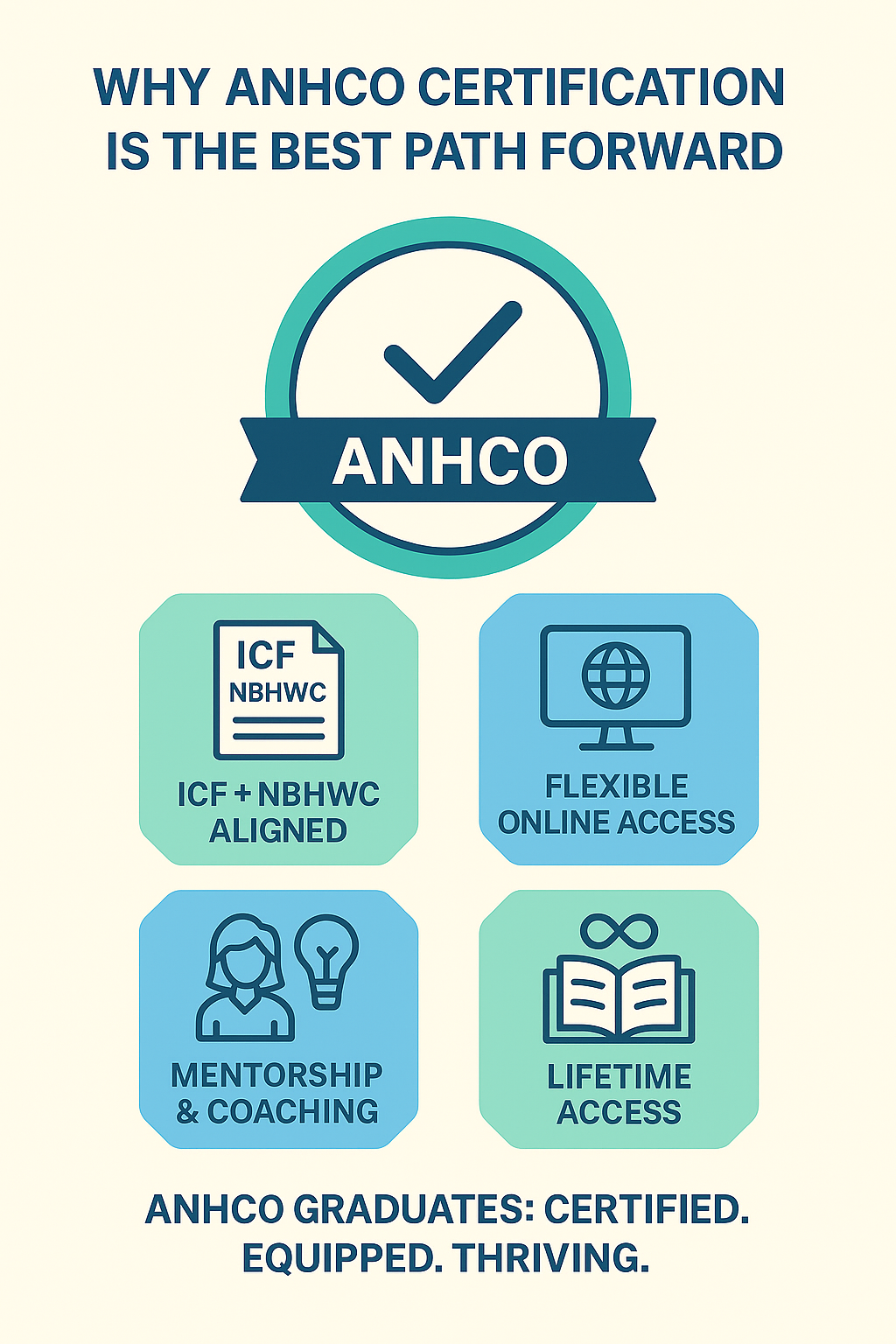The Ultimate Guide to Getting Health & Life Coaching Certification in North Carolina: Everything You Need to Know in 2025-2026
North Carolina is quietly emerging as a wellness powerhouse. With its mix of corporate hubs, hospitals, and holistic wellness centers, the state offers one of the most promising markets for certified health and life coaches. Whether you’re based in Charlotte, Raleigh, or Asheville, this guide explains exactly how to get certified, what salaries to expect, and how to turn your certification into a thriving business in 2025–2026.
1)Why Health & Life Coaching Is Surging in North Carolina
North Carolina’s growing health ecosystem is driven by a shift toward preventive care and lifestyle coaching. Hospitals like Atrium Health and UNC Health now integrate coaching into patient programs. Companies in Raleigh and Durham — inspired by the success of wellness models in Virginia and Maryland — are embedding coaching into employee benefit systems.
North Carolina’s population also aligns perfectly with coaching demand: young professionals, corporate teams, and health-conscious families. Many are seeking certified guidance on stress management, weight control, and career clarity. This shift mirrors trends across Texas and Utah, where certified coaches are replacing generic wellness programs with measurable transformation outcomes.
North Carolina Health & Life Coaching Career Insights (2025–2026)
| Category | Details |
|---|---|
| Average Salary (Certified Coach) | $64,000 / year |
| Top 10% Salary Range | $92,000 – $118,000 / year |
| Entry-Level Salary | $38,000 – $47,000 |
| Projected Job Growth (’24–’26) | ≈23% increase |
| Primary Work Settings | Hospitals, wellness startups, HR programs, private practice |
| Top Employers | Atrium Health, Novant Health, MindPath Wellness |
| Common Specializations | Stress resilience, wellness transformation, productivity coaching |
| Popular Coaching Niches | Corporate wellness, holistic health, emotional mastery |
| Certification Duration | 3–6 months |
| Preferred Accreditation | ANHCO, ICF, NBHWC |
| Client Demand Growth | +20% YoY since 2023 |
| Top Training Cities | Charlotte, Raleigh, Greensboro |
| Average Hourly Rate (Private Practice) | $75 – $150 / hour |
| Digital Coaching Demand | +35% increase in remote clients |
| Best Entry Path | Enroll in ANHCO certification and define niche |
| Job Placement Assistance | Provided by ANHCO’s alumni network |
| Remote Coaching Viability | High — 75% prefer virtual coaching |
| Emerging Niche in NC | Mindset and leadership transformation |
2)Building a Profitable Coaching Business in North Carolina
Certification opens doors, but strategy keeps them open. North Carolina’s coaches thrive when they combine structured programs with strong digital presence.
Here’s what’s working best in 2025–2026:
Offer hybrid coaching models. Combine online sessions with local partnerships.
Create transformation packages. Frame offers around outcomes (e.g., “12-Week Reset”).
Leverage content marketing. Use ANHCO blogs and SEO to rank for terms like “life coach Charlotte.”
Network locally. Partner with gyms, yoga studios, and HR departments.
By following templates used in Kentucky and Louisiana, you can replicate proven regional growth models.
3)How to Get Certified as a Health & Life Coach in North Carolina
Becoming certified in North Carolina is straightforward, especially with ANHCO’s accredited program, which mirrors standards in Indiana and Iowa.
Choose an accredited certification program – ANHCO ensures compliance with ICF and NBHWC.
Complete training (75–100 hours) covering behavioral science, client communication, and accountability frameworks.
Participate in mentorship sessions with supervised real-client simulations.
Pass your certification exam to prove your competency.
Begin professional practice through partnerships or private coaching.
The best part? ANHCO certification can be completed online while working full-time — giving you the flexibility that most students in Texas and Washington appreciate.
Poll: What’s Your Biggest Challenge in Becoming a Certified Coach in North Carolina?
4)Why ANHCO Certification Is the Best Path Forward
ANHCO’s certification gives you instant credibility. Beyond theory, it teaches branding, pricing, and scaling — making it the most comprehensive route to success.
Key benefits include:
ICF + NBHWC aligned curriculum recognized nationwide.
Flexible online access for working professionals.
Mentorship and career coaching included.
Lifetime access to updated modules and peer networks.
Graduates from ANHCO are not just certified — they’re equipped with business tools, marketing strategies, and leadership training that help them earn faster and retain clients longer.
5)Career Opportunities for Certified Coaches in North Carolina
Once certified, you’ll find opportunities across hospitals, wellness centers, and online platforms. The state’s health systems are modernizing, and ANHCO-certified coaches are preferred for roles in:
Corporate performance coaching at Fortune 500 companies in Charlotte.
Health coaching partnerships with medical centers in Raleigh.
Lifestyle coaching startups expanding across Durham and Wilmington.
North Carolina’s job growth mirrors that of South Carolina, proving the demand for coaches who combine empathy with measurable outcomes.
6)FAQs: Health & Life Coaching Certification in North Carolina
-
4–6 months on average, depending on your training pace and mentorship completion.
-
No, ANHCO programs are open to anyone passionate about guiding others.
-
Salaries range from $38,000 to over $118,000 depending on experience, niche, and client volume.
-
Yes, ANHCO aligns with ICF and NBHWC standards, ensuring national recognition.
-
Absolutely — most North Carolina coaches now work virtually with national clients.
-
Stress transformation, corporate leadership, and weight management rank highest.
-
Business strategy, client psychology, ethics, and digital marketing modules.


